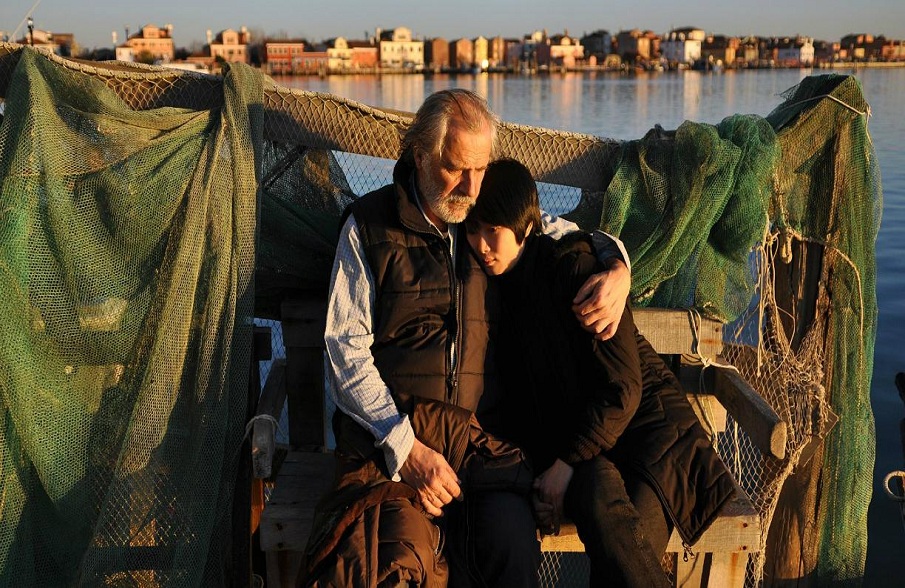After being presented at the Venice Days event of the 68th Venice International Film Festival, Io Sono Li, written and directed by Andrea Segre, was distributed in Italian cinema theatres in September 2011 and, thereafter, in a number of European countries, including France and Spain.
It is the story of a female Chinese immigrant in Italy called Shun Li, who has to work hard in a textile workshop in order to obtain the documents she needs to bring her son to Italy.
It won three prizes at the Venice Film Festival, including the Fedic Award (awarded by the Italian Cineclub Federation), “for the originality of a story that skilfully weaves fiction and documentary and gives us an effective and convincing portrait of today’s reality”.
Often in the Venice spotlight, starting with presentation of Dio era un musicista (God was a musician, 2005) dedicated to African culture, Andrea Segre’s work has revolved from the outset around the issue of the marginalisation of certain peoples and the search for their specific ethnicity, attempting to bring into focus their encounters with different social forms.
This was true of his first documentary, Lo sterminio dei popoli zingari (Extermination of the gypsy peoples), in 1998, or the later Come un uomo sulla terra (As a man on earth), of 2008, centred of the experiences and suffering of migrants en route to Europe. Not forgetting Il sangue verde (Green blood), which reconstructs the events and violent clashes in Rosarno in the Reggio Calabria province, where several hundred migrants demonstrated in the streets of the city in January 2010 to protest against discrimination and wretched living conditions, setting vehicles alight and battling with the police.
Io sono Li marked Segre’s first outing as the director of a “feature film” in which, however, the filmmaker’s documentary sensibilities emerge with great intensity, in particular through a photographic style that was very careful to exploit the depth and complexity of real settings. This striving to stick to the social reality is apparent in the fact that the bar where the main character Shun Li works actually exists in real life: it is the Osteria Paradiso in Chioggia in the Venetian lagoon, a haunt for the fishermen who inspired the most important encounter in the film. This establishment is actually run by Chinese immigrants. As Segre himself emphasises: “The film is based on a true story, a real encounter with a Chinese girl who worked behind the bar of a tavern frequented by Chioggia fishermen. Watching her provided ideas for the story. What sort of relationships would she be able to establish in a region like mine, so unaccustomed to change? From that real encounter, the idea arose to fictionalise the story.”
Among the director’s most recent works, very much in line with his interests and his poetry, the documentary Indebito (Undue Debt) in 2013 should be noted, in which an artistic tour of the Italian musician Vinicio Capossela become the opportunity for a passionate analysis of Greek culture and society in the years of the financial crisis. La prima neve (The first snow), also released in 2013, is the story of a citizen of Togo who emigrates to Italy and goes to live in a mountain valley where he establishes a strong bond with the local inhabitants. Come il peso dell’acqua (Like the weight of water) was produced to mark the anniversary of the 2013 tragedy in Lampedusa in which 366 migrants were drowned.






































